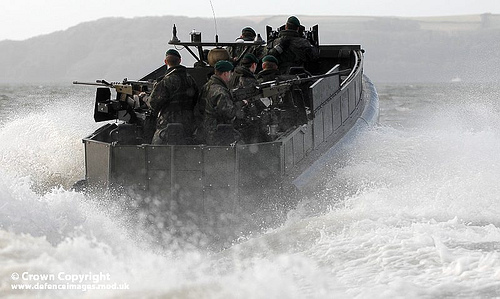
Permanent structured cooperation and the future of ESDP

In
The efficiency problem of Europe’s armed forces is well known: of an impressive overall number of over two million men and women in uniform in the EU-27, only a meagre 10 to 15% are estimated to be deployable. The causes are manifold: the low cost-effectiveness of a plethora of small-scale capabilities, unnecessary intra-EU duplications, the presence of large numbers of quasi nondeployable conscripts, capability gaps in terms of ‘enablers’ (strategic transport, command, control and communications), and, although all EU Member States are conscious of the challenge and are implementing measures, slow transformation nonetheless from territorial defence to expeditionary warfare. The question must be asked whether the existing mechanisms, in ESDP as well as NATO, are sufficient to achieve the required transformation within a reasonable timeframe. This paper will argue (1) that the primary cause of this problematic state of affairs is the still almost exclusively national focus of defence planning, while capability gaps at the aggregate EU- and NATO-level are being ignored, and (2) that the only way to achieve the quantum leap that is necessary to realise defence transformation is through pooling which, by reducing intra-European duplications, can produce much more deployable capabilities within the current combined defence budget. From that point of view, it will analyse the potential of Permanent Structured Cooperation,1 the new mechanism to be established by the Lisbon Treaty for ‘those Member States whose military capabilities fulfil higher criteria and which have made more binding commitments to one another in this area with a view to the most demanding missions’ (Art. 28A §6). One could argue that the solutions to Europe’s capability conundrum are in effect well known – the question is whether PermStrucCoop can be the platform that convinces the Member States to implement them. Sven BISCOP
1. Even in a text as full of jargon as the Treaty on European Union, Permanent Structured Cooperation stands out as especially awkward, all the more so as its logical acronym, PSC, already exists, referring to the Political and Security Committee. Even though the latter is widely known as COPS, in order to avoid confusion this article will opt for Soviet-style abbreviation, hence PermStruc- Coop.
2. Prof. Dr. Sven Biscop is a senior research fellow at Egmont – The Royal Institute for International Relations in Brussels and a visiting professor at the College of Europe in Bruges. The author thanks Daniel Keohane of the EU Institute for Security Studies and various officials in Belgian Defence and Belgian Foreign Affairs for their indispensable comments and suggestions. The text, including its mistakes, is the full responsibility of the author only.
(Photo credit: UK MoD Defence Images, Flickr)